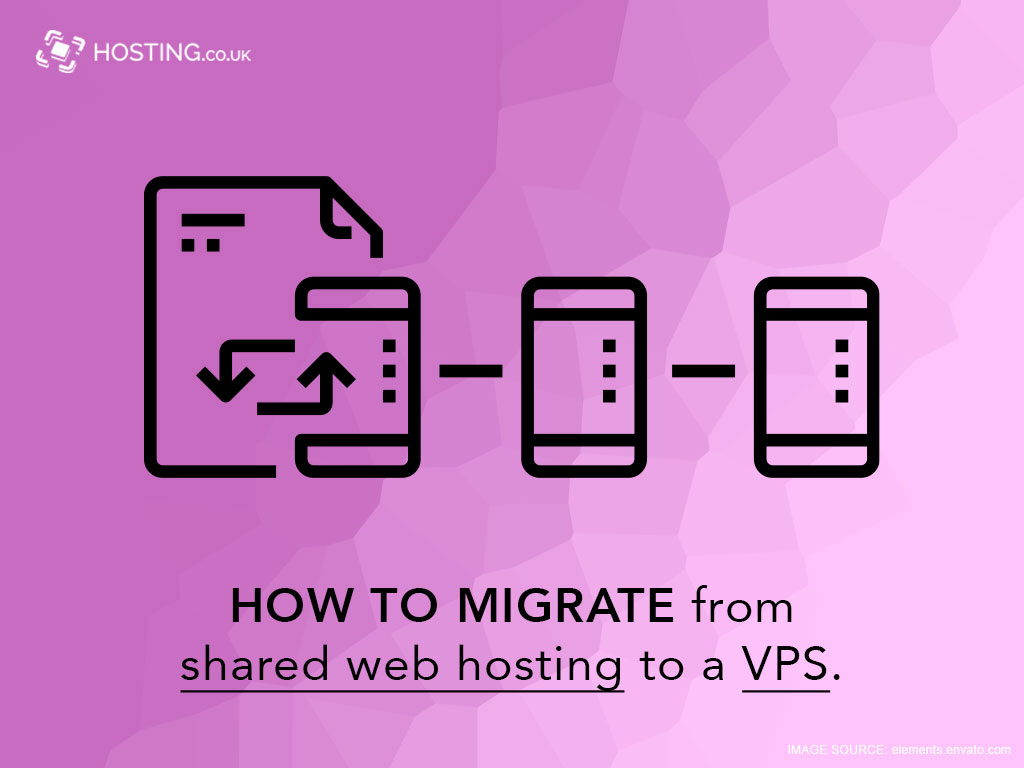Most persons and organisations start their first website by using shared hosting services. However, as their online presence starts attracting more traffic they soon realise the need for more power, space and bandwidth. When that time comes, the obvious choice is simply to migrate from shared hosting to VPS hosting.
Table of Contents
Understanding shared hosting
As the name suggests with shared hosting you and several other websites use the same server for hosting purposes. The resources are divided and instead of getting a personal server you get an account on a server. The service provider manages the resources, software and applications. It is also their job to allocate and manage resources across all accounts on the server. Apart from the shared server, all accounts are private.
Understanding VPS hosting
Virtual Private Server (VPS) is one of the most popular hosting services available. With the use of virtualisation technology, it provides isolated dedicated resources to multiple users on a server. It offers more security than shared hosting so instead of just an account on a server you get your own dedicated server space.
Hosting service providers normally offer a few hosting plans. This way you can choose the one that is ideal to meet your website’s needs.
Benefits of migrating from shared hosting to VPS
VPS hosting forms the ideal combination of the affordability of shared hosting with the added functionality of a dedicated server. There are also several other benefits of migrating your shared hosting to VPS.
1. There is more freedom, performance and speed
With VPS hosting you have the freedom to host an unlimited amount of domains. You can also install software and applications. In terms of performance, VPS hosting does considerably better than shared hosting. You also have control of the server and can make changes to its settings. You do not have this luxury with shared hosting because any change to the server affects all users. It’s also possible to upscale and get more resources to facilitate the growing traffic on your website. This also essentially speeds up the loading time of your website which results in improved customer experience. Happy customers are good for business.
2. More capacity for expansion and peaks
There are more resources available to VPS users than persons using shared hosting. If your website is growing or you are just starting out with a projection of growth VPS is the way to go. VPS has the capacity to deal with heavier traffic without affecting your performance.
3. You can choose a managed VPS solution
Lots of web hosting providers like Hosting.co.uk also provides a managed VPS option that is user-friendly. This fully managed service includes free installation and setup of your server, software updates, security patching and 24/7 support. They also offer an optional control panel for you similar to the one you may be used to with a shared account.
4. VPS operates in a self-healing environment
Another advantage of having a VPS plan is its built-in self-healing features. So there is no need for manual intervention to deal with configuration issues. The cloud platform used to host your data keeps on configuring and reconfiguring the resources such as disc storage, memory and processing. This creates an automatic fail-over when there is a system failure. Even dedicated servers do not offer this feature. But VPS shines in this regard, offering you a self-healing environment.
5. Knowing when it is time to consider a VPS migration:

There are certain signs that will tell you when it may be time for your site to be migrated to a more powerful hosting solution.
- Your site starts loading extremely slow.
- You are way too familiar with the 509 Bandwidth Limit Exceeded error.
- Your hosting plan does not allow you to run certain software.
- You need more security and tech support to facilitate the growing traffic to your website.
If you are experiencing one or more of those issues, it is time to migrate your shared hosting to a VPS plan. But before moving on, ensure you have access to your shared hosting account, VPS as well as the cPanel of your domain. Now that you have those, have you already decided to migrate to VPS but are not sure of the steps? No problem, we have created a list of the steps you should take in migrating from shared hosting to VPS hosting.
Simple steps on how to migrate from shared hosting to VPS
Step 1 – Transfer your domain to your new host (they must have a domain service)
This is optional but advised. Save yourself time and resources by transferring your domain to your new hosting provider or a domain registrar. This makes life a lot easier when migrating from one host to another. This way you will make sure that your domain name remains operational and safe during migration.
Step 2 – Create a Backup of Your Website
You should already be backing up your website. It is even more relevant now. Therefore, before you make any irreversible changes ensure that you back up your website. Export your website’s database and download your files. Not only will this help in the transfer of databases and files later but it will be there as a safety net should something go wrong. Go to your cPanel and back up your files before moving on.
Step 3: Upload your files and import your database to your new VPS
Set up your new VPS account and then upload all the files and databases you downloaded earlier. Now that you have moved your data to your VPS account, you are ready for step 4.
Step 4: Point your IP address to your new server
You are almost there! You can now go to your DNS provider point your address to your new server. Normally you email this request to your domain name registrar.
And just like that you have moved out of an apartment into your very own house with a backyard. Congratulations on successful migrating your shared plan to VPS. Enjoy the new perks as your business continues to expand. At Hosting.co.uk, we have four VPS plans that let you easily scale your website whenever you need more resources.
